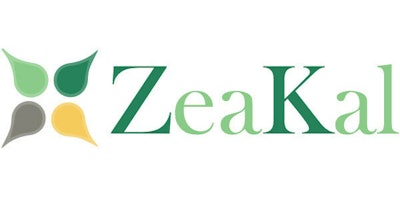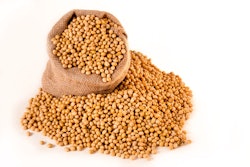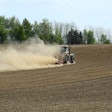
ZeaKal announces new data further demonstrating that its PhotoSeed™ technology is the first to improve the oil, protein and sustainability profile of soy, delivering greater nutritional composition and profitability across the supply chain.
Across multiple field sites spanning top producing soybean states, PhotoSeed increased oil composition up to 17% and protein up to 7% on a dry weight basis – with consistent yields comparable to modern cultivars. Building on data released last year, ZeaKal’s 2020 trials further proved that the novel trait technology delivered better carbon capture and overall nutritional composition in a year when the industry recorded an all-time low in soy protein levels.
“This year’s data shows we’ve taken PhotoSeed one step further to decouple the 2:1 inverse genetic relationship between protein and oil, which has been an industry-accepted sacrifice,” says Greg Bryan, Chief Technology Officer at ZeaKal. “Consistent results across multiple geographies and growing seasons brings ZeaKal one step closer to achieving greater returns for farmers, processors and end users on existing acres.”
Today, the R&D pipelines of several leading soybean seed producers have solely prioritized yield and agronomics that often come at the expense of composition valued by the processors and end users of soybeans. As the world’s demands for plant oils and protein continue to increase and outstrip production at an unprecedented pace, yield alone will no longer be sufficient for sustainably meeting demand.
PhotoSeed helps meet global demand for higher energy crops
“Early indicators suggest the global soybean market is experiencing vast structural shifts. Even as we focus on protein, the pressure for oil is more urgent,” said Gordon Denny, Board Advisor for ZeaKal, United Soybean Board and U.S. Soybean Export Council. “Without new technology like PhotoSeed, which can equitably deliver desired grain composition, the food system will have a difficult time responding to demand for high energy and nutrition crops over the next decade without major pressure on food security and prices.”
According to several soybean industry experts, the percent of gross processing margin attributable to oil versus meal is increasing dramatically from its typical range of 30-33%, despite making up only approximately 18% of its weight. In recent months, soybean oil has grown to more than 40% and is predicted to reach 50% of the bean’s value soon. In emerging countries where soybean oil prices have doubled, the effects of inflation and rising food costs are already being felt. By increasing both oil and protein, PhotoSeed has created a more profitable way for densifying nutrition while keeping food prices stable.
“PhotoSeed is a game-changer as it addresses producer and consumer demands with a hat trick product offering wrapped in a single technology,” said Han Chen, ZeaKal co-founder and CEO. “By translating carbon into nutrition, we can bring meaningful benefits to farmers, processors and end users while also ensuring these food and feed products align with consumer values. Going forward, we aim to engage everyone across the entire supply chain to ensure healthier, more sustainable and affordable food is the industry standard.”
Earlier this year, ZeaKal launched an initiative to build a NewType agriculture system to capture and share premiums from better composition, processing advantages and improved sustainability metrics with farmers and producers. The company’s partnership with Gro Alliance was another step in building a community striving to grow nutritious food while improving the livelihoods of everyone along the supply chain. PhotoSeed commercialization is expected in the 2024 growing season.
About ZeaKal
At ZeaKal is building a value driven “NewType” of agriculture to harmonize the needs of farmers, consumers, and our planet.

















